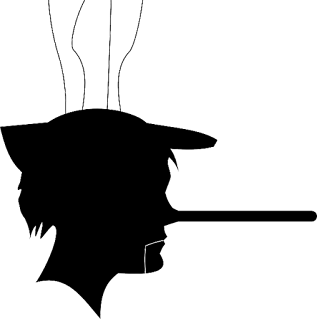Remember Thomas Callaway, 43, of Statesboro, Georgia, USA, who slapped journalist Alex Bozarjian on the rear back in on live TV back in 2019? First he lied about it, and when he realised he was caught on video, he tried to act as if it was a mistake. As it's classic abuse, it inspired me to write this post.
One way to see through trickery and gaslighting is to analyse apologies.
Many abusers are careful to maintain a façade of decency, respectability and fairness, so they operate behind closed doors. But with videos and the #MeToo movement, they're being called out more and more.
When confronted, you will hear them make 'apologies' that go like this:
#1 They state horror and pretend they don't know what's going on
#2 They appeal for pity through personal illness or sick children
#3 They make a non-apology
#4 They point out some completely unrelated virtuous act
Something like this:
"I'm totally shocked! I don't understand. I'm just a simple person. Why are you angry? You know I haven't been well recently. If I did something, and I don't know what, I'm sorry. You know I go to church every week and I volunteer."
The approach is actually very clever because it's a layered effort meant to attack you.
#1 They state horror and pretend they don't know what's going on
It's a deliberate misdirect that has two aims: to make you doubt yourself and to get other people to question whether you are truthful.
#2 They appeal for pity through personal illness or sick children
It's a deliberate misdirect with two aims: to make you feel guilty and to get other people to think you are attacking an 'untouchable' target.
Even if they are sick etc, this is a red herring, a deliberate attempt to gaslight you. Put crudely, men with dicky tickers and single mums of autistic kids can be abusive predators.
#3 They make a non-apology
Because some people will see the word sorry and not realise that it's meaningless because of it being sandwiched in between denial and attack. Also, predators offend face to face but they apologise in public and not to the victim if they can possibly help it. The remorse is a show to get public opinion on their side; they have no interest in the feelings of the victim.
#4 They point out some completely unrelated virtuous act
This is to appeal to black and white thinkers who see humanity as simply good or bad. In truth of course, we are all mixed up with bits of good and bad floating to the surface all the time.
Predators hope that the audience will say, "OMG, a person who did something good once can't possibly be an abusive predator." It's powerful stuff, which is why so many clever predators opt to work in religious institutions. If you aim to enjoy a life as a predator, that kind of authority and white hat regalia offers good camouflage.
A real apology sounds like this:
#1 Owning the act
#2 Saying you're sorry directly to the victim
#3 Asking for forgiveness
#4 Offering to make amends (if appropriate)
"I'm so sorry I called you a twit. It was wrong of me. Can you forgive me? May I give you two tickets to the concert to make up for it?"
Analysing how people apologise is important for figuring out if you're in a toxic relationship. It's also useful for "she said, he said" situations.
By the way, although abusers often get away with their violence, Thomas Calloway was caught on videotape, which helped to get him convicted and fined.
Photo Credit: The nose is from Pixabay


